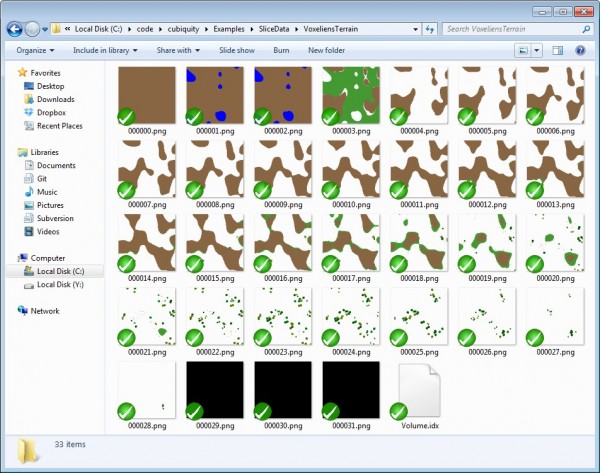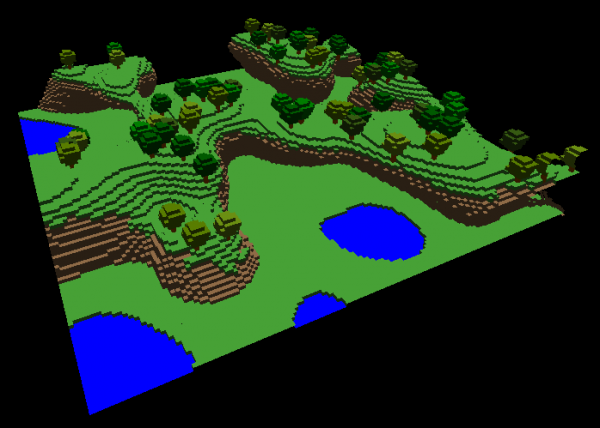One of the challenges which we face when developing a voxel engine is finding appropriate datasets to test with. For researchers working with mesh data there are a number of standard test models (Sponza, Dragon, etc) which have been used in hundreds of papers over the years, but our options for volume data are a lot more limited. There are some archives containing CT/MRI data but this is not appropriate for all usage scenarios.
Another challenge is the lack of a standard format for volume data, as this impedes our ability to pass data between different voxel applications as well as making the creation of the above mentioned volume data archive more difficult. The only real standard is DICOM, but this is very complex and heavily geared to the medical imaging industry rather than more general scenarios.
Therefore we are taking the initiative to create ‘VolDat’ as a standard format which we hope will be adopted by the various applications which work with volume data, and which will form the basis of our own volume data archive. This is not meant to replace an application’s own format, but instead to be an additional import/export option to promote interoperability.
The format itself is very simple, and is independent of the kind of data your voxels represent (you can use it for coloured cubes, Minecraft-style terrain, density fields for smooth terrain, etc). We basically store each volume as a series of images in a standard format, along with a text file describing some of the volume’s properties. This makes it very easy to understand the data even without reading the specification. For example, the image below shows one of the maps from Voxeliens in VolDat format being viewed in Windows Explorer:
When rendered in 3D it looks as follows (you should all know this having played Voxeliens!):
We’d really appreciate any feedback on this initiative or on the specification itself. The specifiaction is currently hosted on Google Docs which means anyone can add comments, and we can give edit permission if people want to contribute:
You can also provide feedback in the blog comments below or in this forum thread. We’ve also prepared a couple of (small) sample volumes which you can take a look at.
- A 3D Mandelbulb – Greyscale data where the intensity represents the number of iterations.
- Terrain from Voxeliens – Colour data from our last game (the dataset shown above).
We will try and contact potentially interested parties regarding this initiative, and please do pass this on to anyone who could benefit from it. Thanks!



